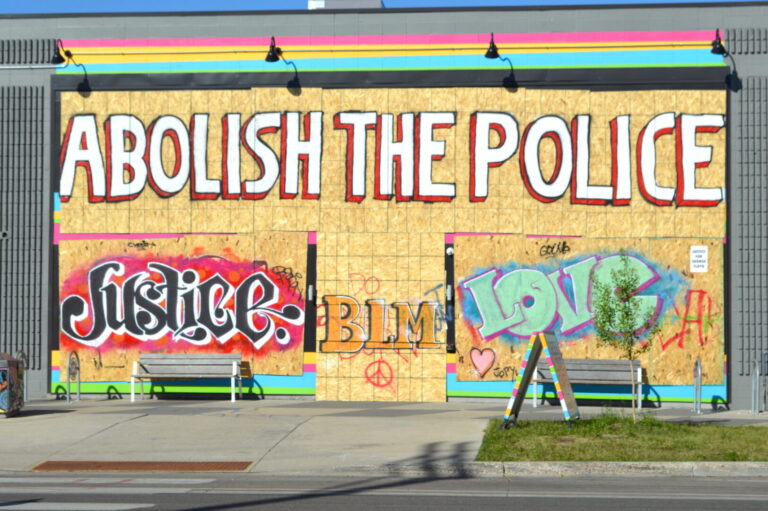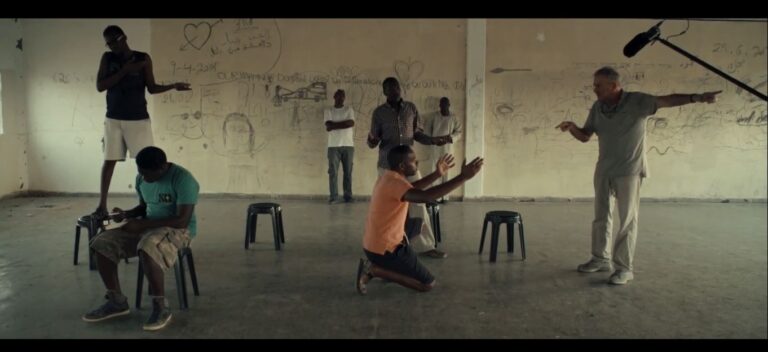Through this article, we examine the history and conventions of copaganda in the United States, and critically consider how HBO’s Watchmen has responded to and represented the historical relationship between policing and white supremacy. We argue that while Watchmen works to explicitly critique the history of white supremacist violence in US policing, the show reproduces several copaganda conventions. Watchmen depicts central law enforcement characters who commit violence as heroes, uplifts the main police character as an eventually almighty arbiter of justice, portrays white supremacist law enforcement characters as anomalous individual infiltrators (a.k.a. “bad apples”), and was created in collaboration with various members of law enforcement. After presenting this case study in contemporary copaganda, we consider how science fiction series can more meaningfully respond to the movement for police and prison abolition through representing abolitionist futures.
Keyword: film
Black Skin, White Cameras: African Asylum-Seekers in Israeli Documentary Film
The recent arrival in Israel of thousands of refugees from countries like Eritrea, Ethiopia, and Sudan has triggered a spate of hate crimes and mob violence. Asked about these asylum seekers in 2012, Likud-party member Miri Regev called them a “cancer.” For this comment, she later apologized—not to the African asylum-seekers but to Israeli cancer survivors, and she expressed regret for comparing them to Africans. Around that same time, Interior Minister Eli Yishai of the Shas Party told a reporter that “this country belongs to us, to the white man.” Continuing on, he stated that he would use “all the tools [necessary] to expel the foreigners, until not one infiltrator remains.” While the racial dynamics of Israel have been thoroughly examined with respect to both intra-Jewish tensions (Ashkenazi supremacy) and the Palestinian issue (white settler-colonialism), in this essay, I want to theorize Israeli whiteness with respect to the African refugees. Specifically, I will examine two recent Israeli documentaries dealing with African refugees—Hotline (dir. Silvina Landsmann, 2015) and Between Fences (dir. Avi Mograbi, 2016). Both openly demonstrate solidarity with the African asylum-seekers, but they do so in different ways, and if the former film leaves the racial hierarchies of Zionism intact, the latter works to shatter them.

